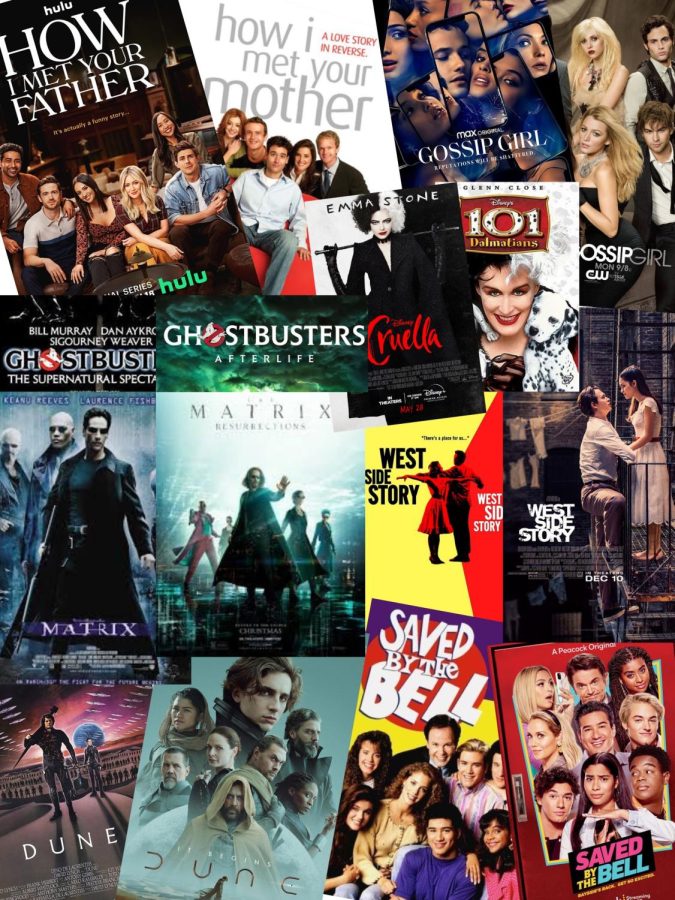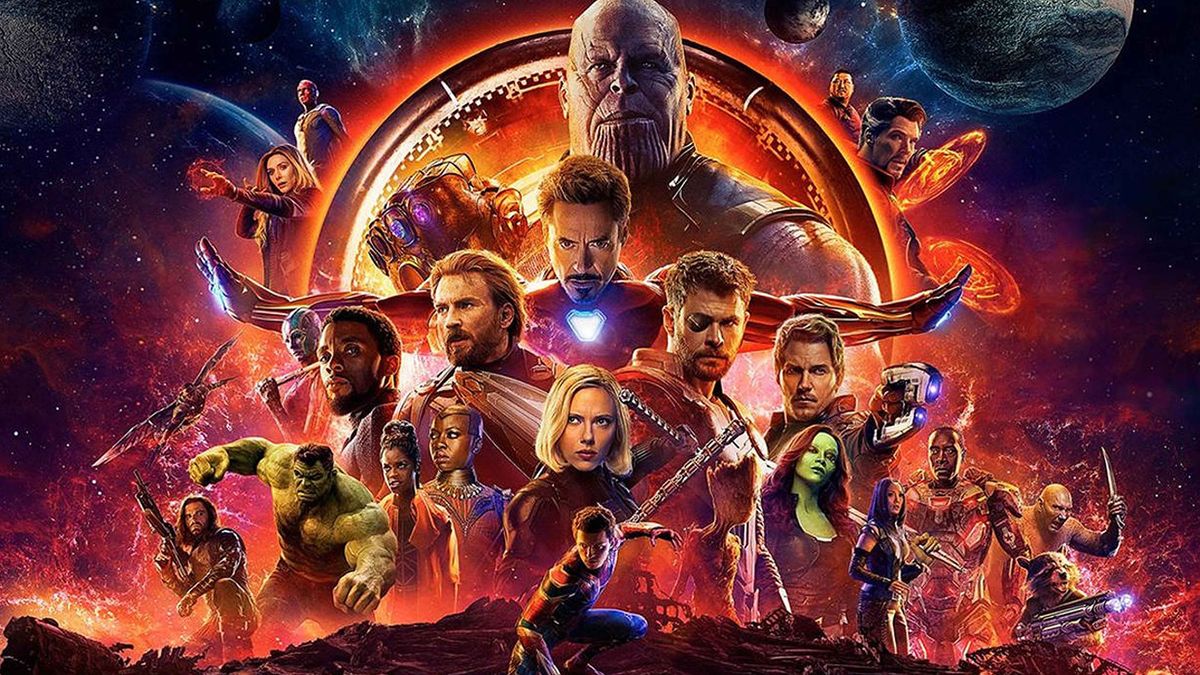Hollywood's Remake Renaissance
Table Of Contents
Why Sequels and Reboots Reign Supreme
Have you wondered why it feels like every new movie or TV show is a sequel, a prequel, or a remake? It's not just your imagination. Hollywood has been on a remake and sequel spree for years, and there are several reasons why this trend is here to stay. Audiences are drawn to familiar narratives, which offer a sense of comfort and nostalgia in uncertain times.
There are many creative choices, business strategies, and cultural implications behind Hollywood's recent use of nostalgia, and the need for revisiting familiar stories. In this article, Hollywood Branded discusses the art and science of filmmaking through the lens of sequels and remakes.
-2.png?width=1200&height=675&name=top%20white%20rectangle%20%20with%20black%20link%20(3)-2.png)
A Safe Bet for Box Office Success
One reason for the recent uptick, is that sequels and remakes often have a built-in fanbase, which can significantly impact a film or series commercial success. Fans of the original material are more likely to return to familiar worlds, support beloved franchises, and share their passion with others. Obviously, this can lead to increased ticket sales, merchandise purchases, and positive word-of-mouth buzz.
Additionally, sequels and remakes can benefit from social media engagement and fan-driven marketing. By leveraging built-in fanbases, sequels and remakes can reduce the risk associated with new releases and increase the likelihood of commercial success. This is why studios often prioritize sequels and remakes when developing their film and TV slates.
Nostalgia is a driving Force

Photo Credit: Tanishka Enugu | The Blaze
Nostalgia is a powerful emotion that can absolutely drive audiences to the theater. Remaking classic films or reviving beloved TV shows taps into our collective memories, evoking feelings of comfort, familiarity, and a sense of belonging. When we revisit these familiar stories, we're transported back to childhood, a time when we felt safe and secure. Moreover, nostalgia can serve as a shared experience that brings people together. Watching a remake or revival with friends and family can create a sense of community and tap into shared memories. Additionally, nostalgia can be a powerful marketing tool. Studios can use nostalgia to create buzz and excitement around a new project, drawing in fans who are eager to relive their favorite moments from the past.
The Rise of Cinematic Universes
The success of franchises like Marvel, Star Wars and Game of Thrones has led to a surge in sequels and spin-offs. Studios are eager to create interconnected universes that can generate multiple films and TV shows over many years. This not only ensures a steady stream of revenue, but also allows for cross-promotion and merchandising opportunities.
By building interconnected universes, studios can create a shared world that fans can explore and enjoy over time. This fosters a sense of loyalty and emotional investment into the franchise, as fans become emotionally attached to their favorite characters and stories. Additionally, interconnected universes offer opportunities for crossovers and cameos, which can excite fans and further drive ticket sales.
Cinematic universes are a powerful marketing tool too! Studios use cross-promotion to generate buzz for new releases and drive viewership to existing content. For example, a cameo from a character from one film franchise to another, like Deadpool & Wolverine, can create excitement and anticipation among fans..
Finally, cinematic universes like the MCU (Marvel), offer a wealth of merchandising opportunities. Studios and marketers alike can create a wide range of products based on the characters, settings, and themes of the universe. This can include toys, clothing, collectibles, and more! By leveraging merchandising opportunities, studios not only generate additional revenue, but also further strengthen the franchise's brand.

Photo Credit: Marvel Studios
Is there a lack of original ideas?
Critics argue that Hollywood's reliance on sequels and remakes is a sign of a lack of creativity. They contend that studios are simply taking the easy way out by adapting proven concepts rather than investing in original ideas. However, it's important to note that many sequels and remakes offer fresh takes on familiar stories, with updated visuals, new perspectives, and expanded character arcs.
For example, the 2017 remake of Beauty and the Beast offered a more diverse cast and explored themes of empowerment and self-acceptance, providing a fresh perspective on the classic tale. Similarly, the Star Wars prequels expanded the universe by introducing new characters and exploring the origins of familiar ones. These examples demonstrate that sequels and remakes can actually be a vehicle for creativity and innovation.
Moreover, sequels and remakes can be a way to introduce new audiences to classic stories. By updating the visuals and adapting the narrative to contemporary sensibilities, these stories become more accessible to a wider audience. This acts to preserve cultural heritage and ensures that these stories continue to be relevant and beloved by future generations.
While some may criticize Hollywood's reliance on sequels and remakes, it's important to recognize that these films and TV shows can offer a wide range of creative possibilities, often times much different than the original. By adapting familiar stories in new and innovative ways, studios can continue to entertain audiences, and contribute to the rich tapestry of popular culture for generations.

Photo Credit: Disney
Adapting to Changing Times
As technology evolves and audiences become more sophisticated, studios are constantly trying to adapt to changing tastes and preferences. Sequels and remakes can offer a way to cater to these evolving expectations, whether it's by incorporating new special effects, exploring darker themes, or addressing contemporary social issues.
For example, the Planet of the Apes franchise has evolved significantly over the years. The original 1968 film was a classic science fiction adventure, while the 2011 reboot offered a more realistic and gritty take on the story. The 2017 sequel, War for the Planet of the Apes, delved into themes of war, morality, and the nature of consciousness, providing a thought-provoking and emotionally resonant experience.
Similarly, the Halloween franchise has evolved to reflect changing horror trends. The original 1978 film was a groundbreaking slasher horror, while the 2018 sequel offered a more grounded and psychological take on the story. The film's exploration of trauma, grief, and the nature of evil resonated with audiences and critics alike.
While some may bemoan the prevalence of sequels and remakes, there's no denying that they continue to be a major force in Hollywood. Whether it's a nostalgic trip down memory lane or an exciting new chapter in a beloved franchise, these films and TV shows offer something for everyone. So, the next time you find yourself tuning in to a sequel or remake, remember that there's a reason it's there: it's a safe bet, it's nostalgic, and it's likely to make some money.
Eager To Learn More?
Interested in the world of pop culture? Check out the 5 articles below written by your very own Hollywood Branded team!
- Roan Revolution: How Chappell Roan is Redefining Pop Music
- Fashion Forward: How Political Campaigns Are Using Style to Shape 2024
- How TikTok Propels Artists Into Stardom
- Top 7 Pride Month Activations in 2024
- 17 Years of Success: Hollywood Branded's Journey from Idea to Inc 5000
Want to stay in the know with all things pop culture? Look no further than our Hot in Hollywood newsletter! Each week, we compile a list of the most talked-about moments in the entertainment industry, all for you to enjoy!







